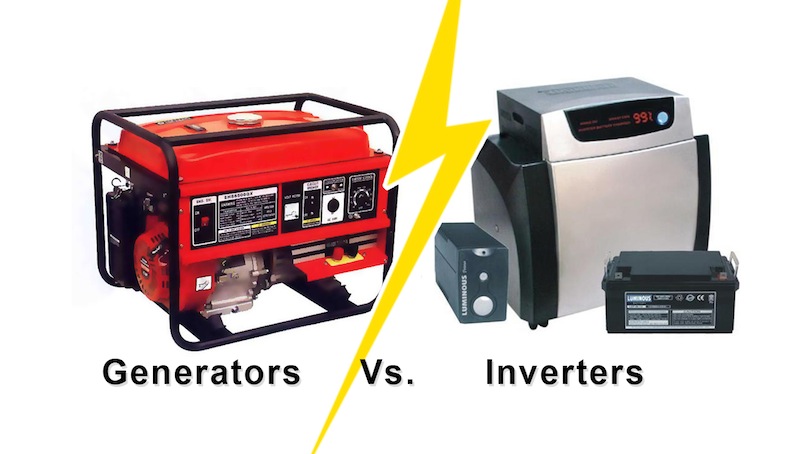
When to Choose an Inverter Generator
The advantages of inverter generators over conventional portable generators is that they are more quiet, are more compact and lightweight, more fuel efficient, are safe for sensitive electrical devices and are generally more environmentally friendly. The disadvantage of an inverter generator is that they usually are more expensive than a comparable conventional generator and don’t house as much power.
Given these advantages and disadvantages, an inverter generator is more suitable for occasional use and specifically for outdoor activities like camping. An inverter generator is a good choice for when you don’t need a lot of power but do need convenient clean electricity that is easy to carry with you.
When to Choose a Conventional Fuel-Powered Portable Generator
The main advantage of a regular portable generator over an inverter generator is that it produces much more power. The disadvantages of a portable generator is that it is bulkier, heavier, makes much more noise and produces more greenhouse gas emissions.
A regular portable generator is best used as a backup generator for the home in areas where there are frequent power outages or risks of natural events like blizzards that are likely to cut the mains electricity supply. The models with rough track wheels and a sturdy build are also more suitable on work sites.
Which is Better, an Inverter Generator or Conventional Portable Generator?
Whether an inverter generator or a conventional portable generator is better really depends on what the generator is to be used for. An inverter generator might be the better option for frequent campers or as a backup source of electricity during road trips while a conventional portable generator works better to power a home or a work site.
Think about where you need the electricity and how much power you actually need. This is the best way to decide between the options.
